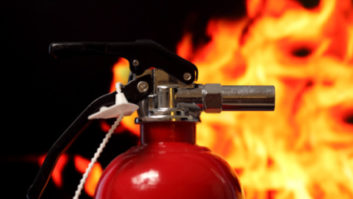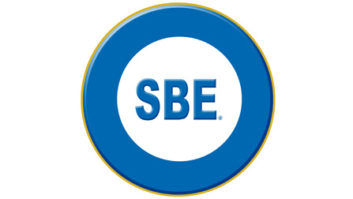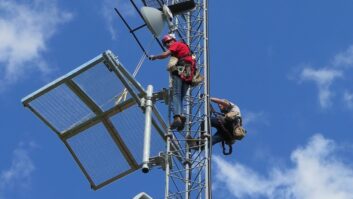The author is director of engineering for Broadcast Devices.
Your article “Fires, Your Station and You” was a great reminder to take a look around and introduce some common sense into planning for what we hope never happens. As the chief of a volunteer fire department I see lots of foolish and sometimes even borderline criminal things. Our mantra is (unfortunately) “You can’t fix stupid.”
[Read: From the Archives: Fires, Your Station and You]
Here are a couple of quick items to add to the sensible suggestions in that article:
- All of that wiring and plastic in your station gives off nasty gases when it burns and though the smoke from plenum-rated cable is supposed to be “less toxic” they stop short of calling it “nontoxic.” Even if the smoke is not obscuring your vision there is a good chance you are breathing in stuff that your life insurance carrier would prefer you do not. If you can’t knock down a fire quickly with a single extinguisher consider backing out and make sure you close the door to limit the oxygen supply to the fire. The last part is very important. As you plan your fire escape strategy with staff make sure they understand that exiting the building and leaving every door wide open is a great way to provide all the oxygen that a fire needs to spread.
- Call the fire department. Not when your station is already on fire but before anything happens. Most fire departments are happy to do a “preplan” walk-through with you and doing so will usually buy you some good will when they point out that you have code violations. Keep in mind that should those code violations be discovered after you have a fire and someone is seriously hurt the consequences will be significantly more unpleasant than the embarrassment of discovering them while you walk-through with the fire department.
A preplan will not only be informative for you and your management but will also give the fire department the opportunity to see the layout of your facility and what hazards might lurk there when they do respond with the building full of smoke and time is of the essence.
- Fire extinguishers need to be checked and recharged. Since you are going to pay someone to do so, consider having your staff practice with them as part of that ongoing maintenance cycle. The time to learn how to use one correctly is NOT when you actually need to use one.
- While on the subject of not learning things when you need to use them, also considering bringing in a CPR instructor to do a class for your staff. One of them might save your life and they will certainly be grateful if they save a family member with training you forced them to take.
Radio World invites industry-oriented commentaries and responses. Send to Radio World.
[Subscribe to our newsletter and get it delivered right to your inbox.]




